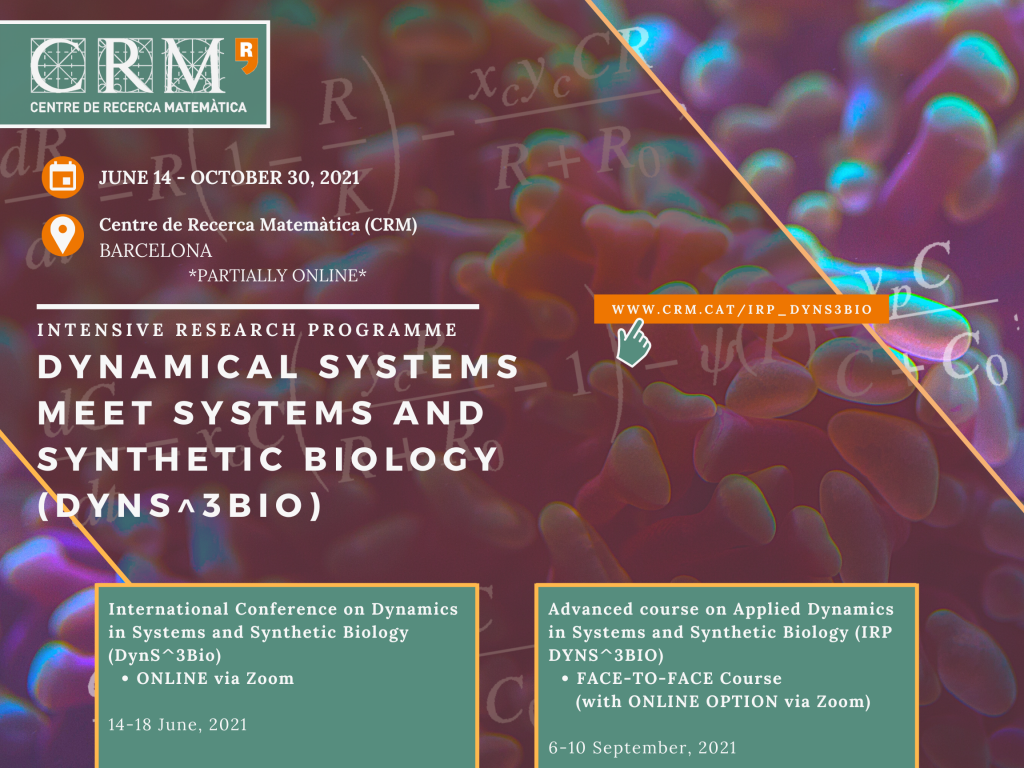From june 14th to june 18th 2021 Del 14 al 18 de juny del 2021 is held the INTERNATIONAL CONFERENCE ON DYNAMICS IN SYSTEMS AND SYNTHETIC BIOLOGY (DYNS ^ 3BIO), a virtual conference that is part of the Intensive Research Program: DYNAMICAL SYSTEMS IN SYSTEMS AND SYNTHETIC BIOLOGY (DYNS3BIO) organized by Centre de Recerca Matemàtica, ICREA-Catalan for Research and Advanced Studies i Institute for Integrative Systems Biology CSIC-UV.

This conference is a great opportunity to bring together scientists working in systems and synthetic biology and dynamicists. The combination of both plenary and short talks may allow senior and young researchers at their postdoctoral and predoctoral stages to expose recent developments and establish productive discussions.
The possibility to mix scientists working in experimental and field data in systems and synthetic biology with scientists specialised in dynamical systems provides a unique opportunity to foster multidisciplinary and rigorous biology-based research.
The generic topics to be discussed include:
- Dynamical structures in biology
- Bifurcations and transitions in systems and synthetic biology
- Dynamical systems approaches to experimental and field data
- Ecological dynamical systems
- Virology and immunology
- Cancer systems biology
The impact of dynamics in systems and synthetic biology is of paramount importance.
Typically, biological systems are highly nonlinear, and nontrivial dynamics can occur even in low-dimensional systems. Nonlinear dynamics can have a huge impact on complex ecosystems, tumor dynamics, or cell circuits, to cite a few examples. Dynamical systems theory offers a unique opportunity to model, simulate, and understand the dynamical outcome in systems and synthetic biology. These outcomes range from stationary states, to transient phenomena, or to transitions between states (bifurcations).
The current development of new technologies and data processing may allow to handle high-ressolution dynamical information for complex biological systems. This fact, due to the development of low- and high-dimensional dynamical systems, offers a unique opportunity to provide qualitative and quantitative information by means of mathematical and computational models. The usage of dynamical systems to describe real-experimental dynamics is bidirectional: models allow us to understand and predict the behaviour of biological systems; new biologically-inspired models can give place to the discovery of new mathematical phenomena. The importance of dynamics in nonlinear systems spans the fields of theoretical ecology, biomedicine, diseases, epidemiology, among others.
The ultimate goal of this IRP is to bring together leading experts in dynamical systems, theoretical and computational biology, and both experimental and field biology.

